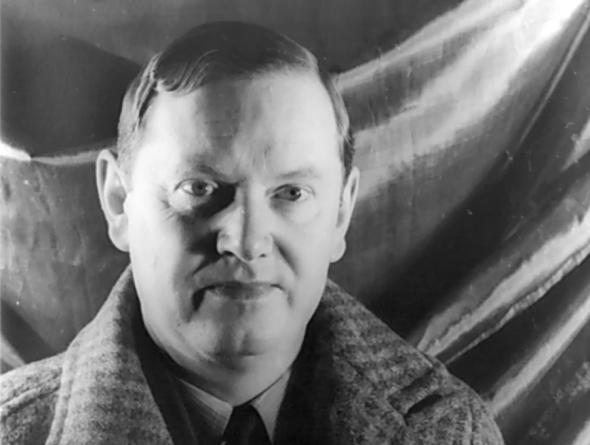“I was christened Arthur Evelyn St John: the first name after my father, the second from a whim of my mother’s,” Evelyn Waugh wrote in his autobiography, A Little Learning. “I have never liked the name. In America it is used only of girls and from time to time even in England it has caused confusion as to my sex.” It seems, then, that Waugh himself, although he died a half century ago, would not have been surprised about Time’s article this week on the “100 Most Read Female Authors on Campus.” If you click on the link now, you will see that it ends with a terse correction stating, “The original version of this story included Evelyn Waugh, who was a man.”
Waugh may have hated the name throughout his life—in boyhood, he claims to have responded to ridicule by citing Evelyn Wood, the famed British Army officer who fought in India and South Africa. But then he decided to marry a woman named Evelyn. In 1927, he became engaged to Evelyn Gardner, which so discombobulated his social set that his friends began referring to them as “He-Evelyn” and “She-Evelyn.” (Not to worry: They soon had an ugly breakup, resolving the problem.)
The angriest Waugh ever got about his name may have been in 1928, when the Times Literary Supplement, in the course of reviewing his early book on Rossetti, referred to the author as “Miss Waugh.” This so enraged Evelyn that he fired off a letter combining his usual mix of snobbery and comic genius: “My Christian name, I know, is occasionally regarded by people of limited social experience as belonging exclusively to one or other sex; but it is unnecessary to go further into my book than the paragraph charitably placed inside the wrapper for the guidance of unleisured critics, to find my name with its correct prefix of ‘Mr.’ ”
Still, his name did allow for some lighter moments. Waugh told a story in his autobiography about reporting on the Italian war in Abyssinia (now Ethiopia), a conflict whose details he would mine for some of his darkly brilliant comedies. He was sent to a military post “many miles from any white woman, preceded by a signal apprising them of the arrival of ‘Evelyn Waugh, English writer.’ The entire small corps of officers, shaven and polished, turned out to greet me each bearing a bouquet.”
